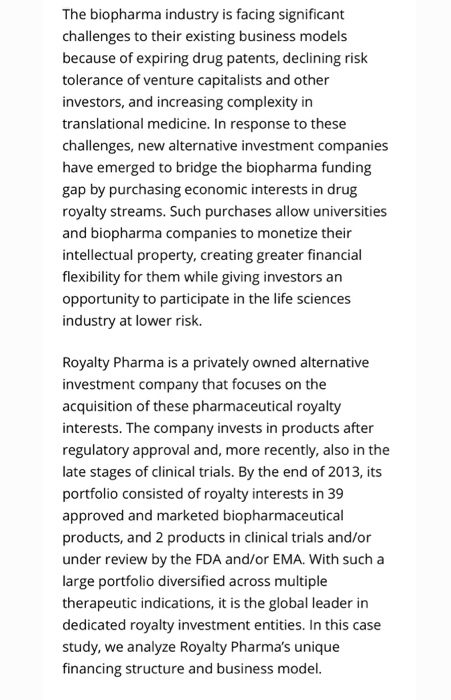Answered step by step
Verified Expert Solution
Question
1 Approved Answer
When purchasing the rights to a royalty, depending on the sellers desired cash flows, Royalty Pharma can provide different types of payment schedules, such as
When purchasing the rights to a royalty, depending on the sellers desired cash flows, Royalty Pharma can provide different types of payment schedules, such as an accelerated royalty or a synthetic royalty. In an accelerated royalty investment, Royalty Pharma provides the seller with the cash flow from a royalty over a shorter duration than the actual royalty.
For example, suppose the seller agrees to receive a fixed annual payment from Royalty Pharma for three years instead of 3% royalty on net sales over the course of 9 years. Assuming net sales of $1 billion per year, and a discount rate of 10%, what is the minimum acceptable fixed annual payment for this three-year agreement? Assume all cash flows including royalties occur at the end of the year so the first payment is made in exactly 1 year. (Note: Your answer should be expressed in units of millions of dollars.)

Step by Step Solution
There are 3 Steps involved in it
Step: 1

Get Instant Access to Expert-Tailored Solutions
See step-by-step solutions with expert insights and AI powered tools for academic success
Step: 2

Step: 3

Ace Your Homework with AI
Get the answers you need in no time with our AI-driven, step-by-step assistance
Get Started


